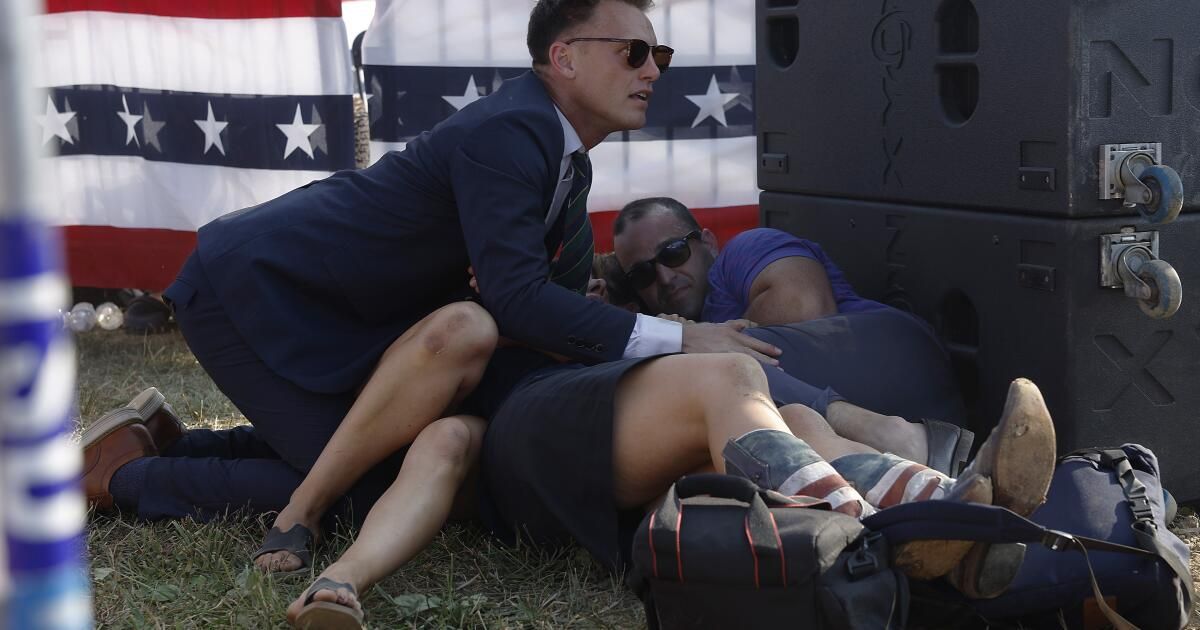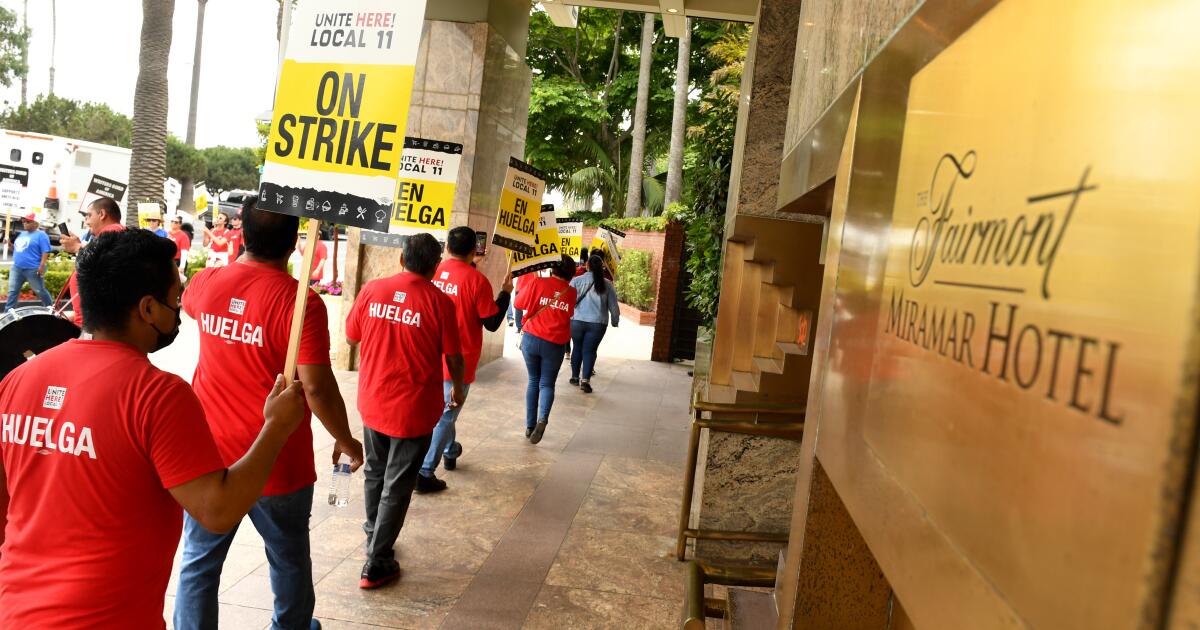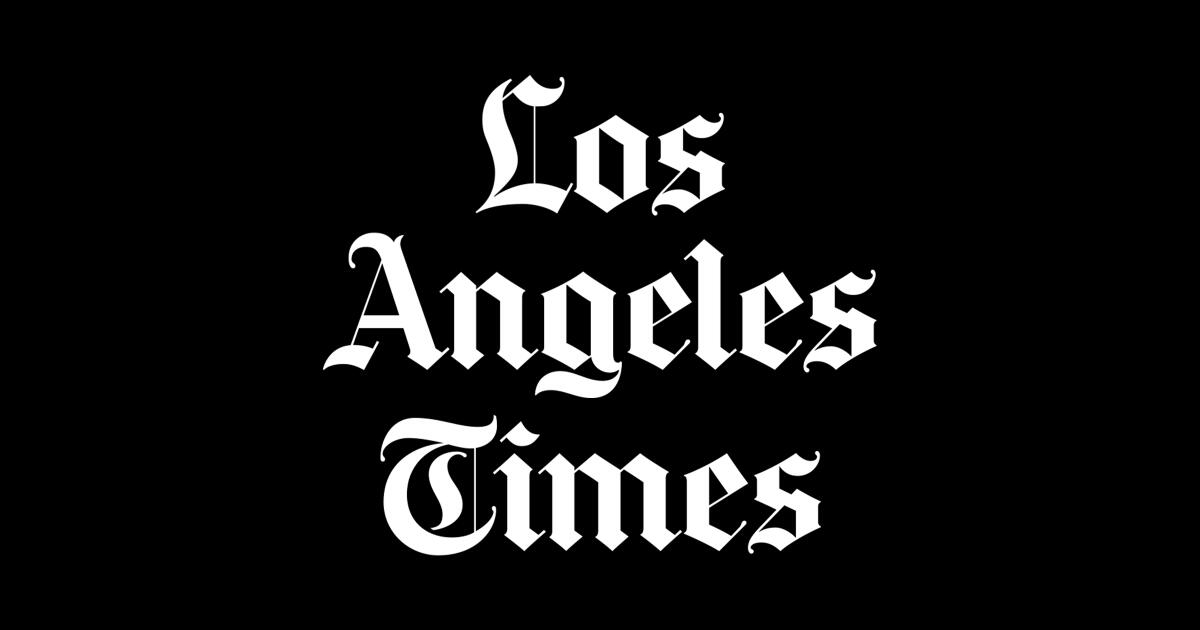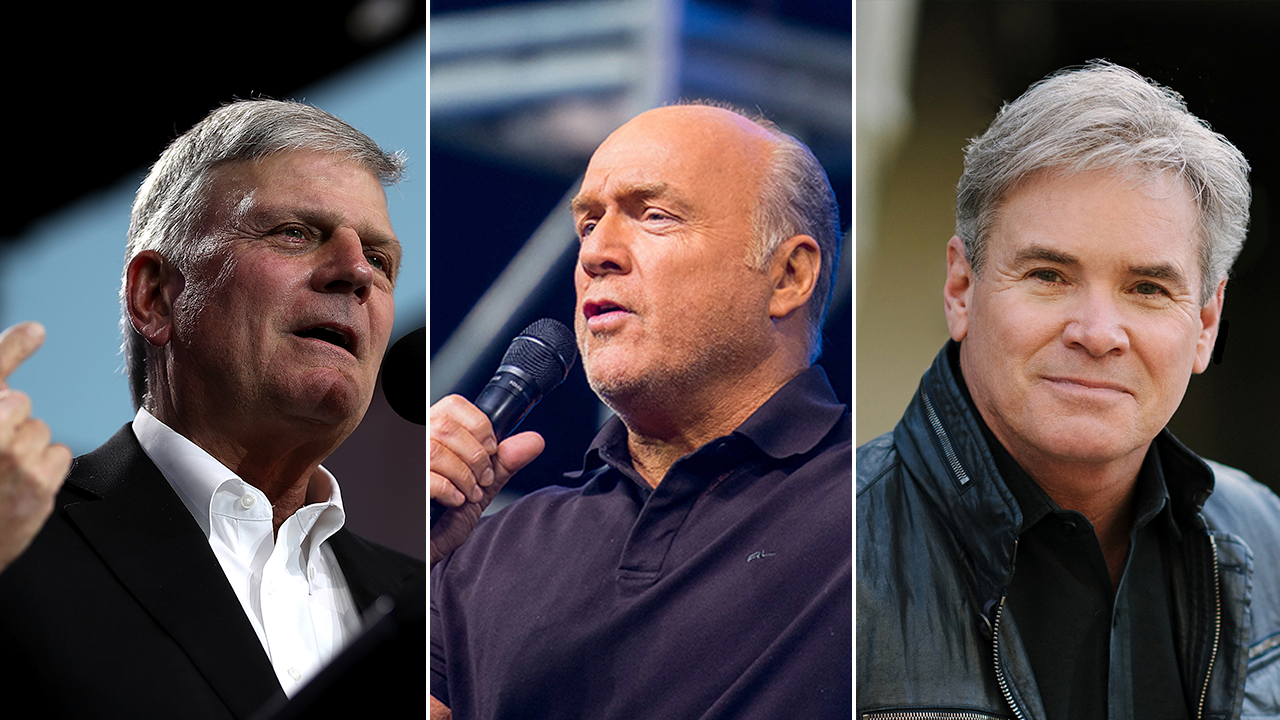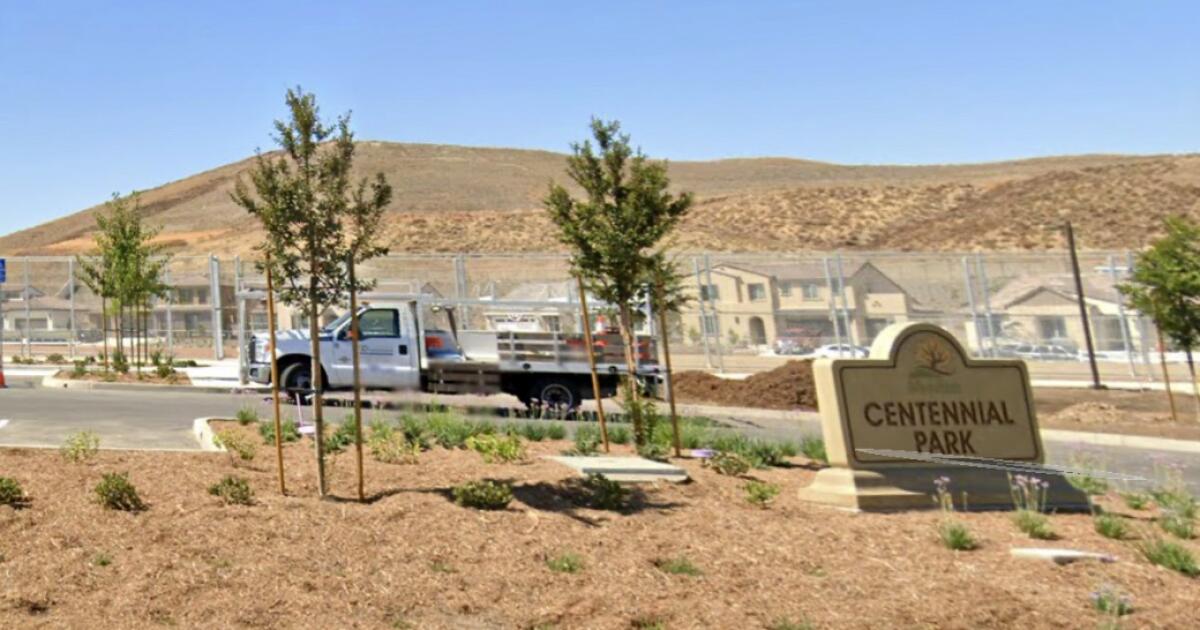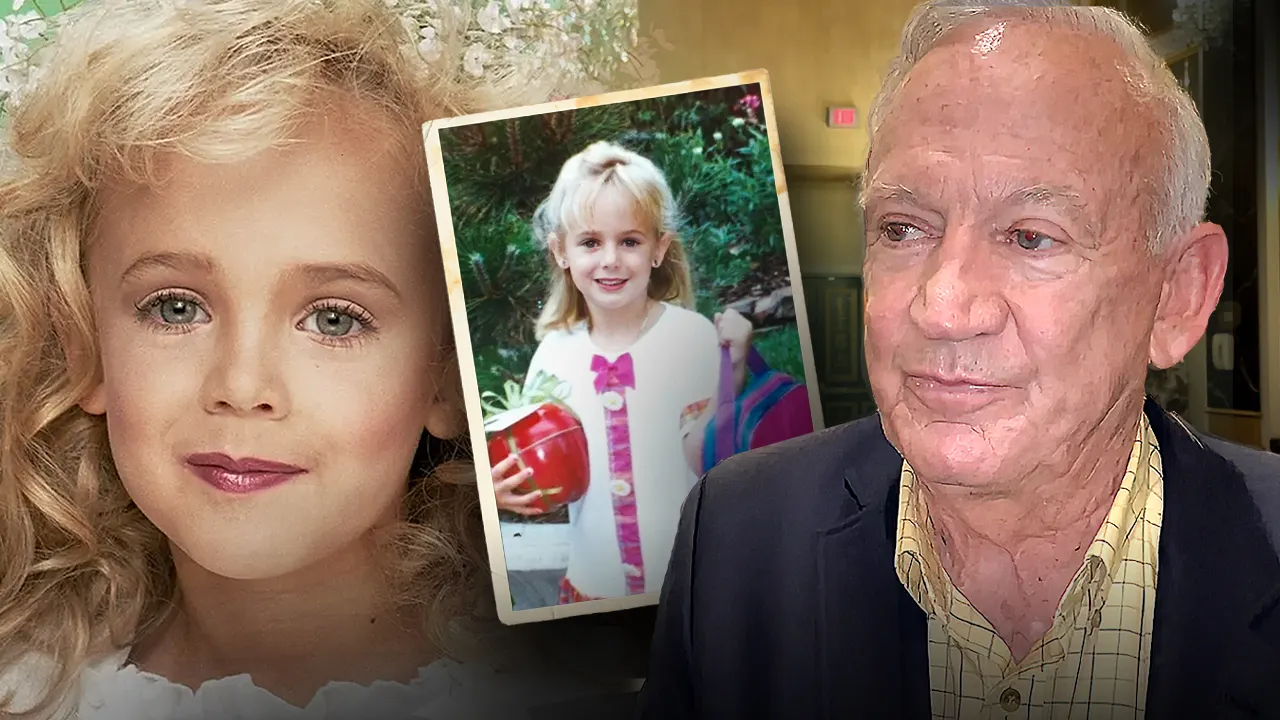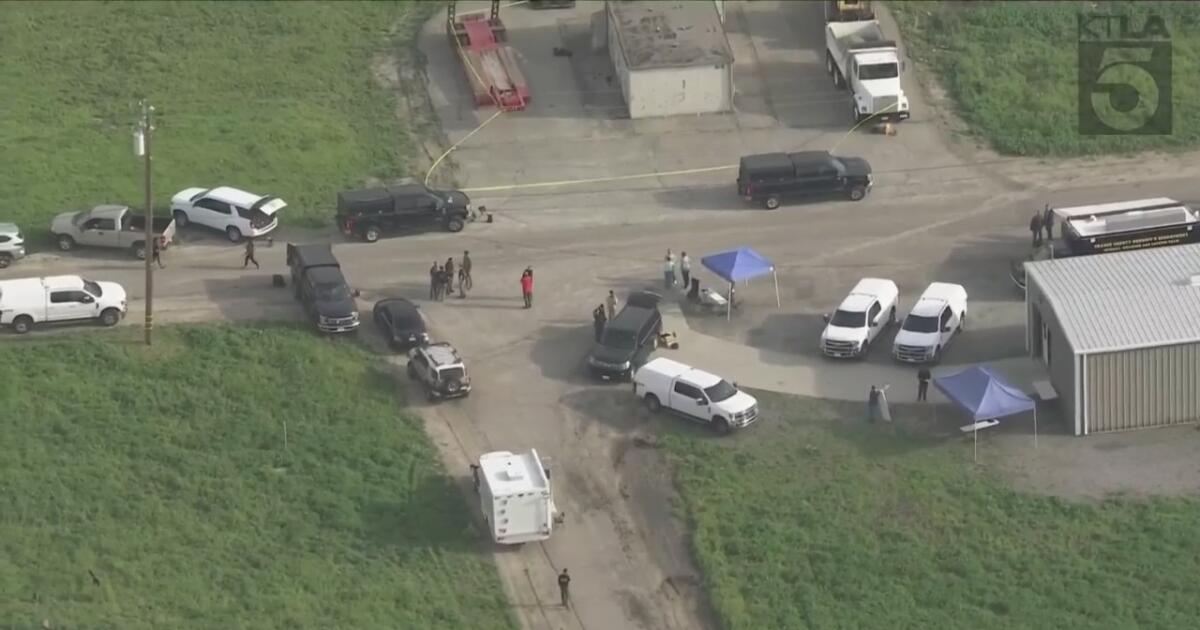The attempted assassination of former President Trump during a campaign rally in Pennsylvania on Saturday felt familiar, in a typically American way.
The shooter pointed his AR-style rifle at people gathered far from his rooftop position, echoing the 2017 mass shooting in which a gunman opened fire at a music festival from the 32nd floor of a Las Vegas hotel.
Authorities said the shooter was 20 years old and obtained the gun he used at home, like so many other young shooters who have left bloody trails in schools, churches, bars and other community gathering places across this country.
“Time and again our communities are shaken by acts of gun violence that have invaded what should be our safe places,” said Angela Ferrell-Zabala, executive director of the gun control advocacy organization Moms Demand Action. “But they are a consequence of our country’s weak gun laws and gun culture everywhere — laws that allow hate to arm itself with a gun to easily take another person’s life.”
Amid allegations of political violence from leaders and Americans of both parties, the country’s great gun divide was again felt raw on Sunday, but it barely changed. Even though their presidential candidate was nearly shot dead, there were no open calls from top Republicans for the party to soften its ardent support for gun rights.
Still, the shooting provided a new and particularly powerful example of another American institution — this time, the electoral process — falling victim to the massive proliferation of modern firearms. And that could matter, as courts across the country and in California continue to weigh when, where and why such weapons can be restricted, if at all.
Right now, federal courts are considering challenges to a California law that bans exactly the type of AR-style rifle used by the alleged shooter, Thomas Matthew Crooks, 20, of Bethel Park, Pennsylvania; another that bars people Crooks’ age or younger from owning firearms; and a third that prohibits people from carrying firearms into a variety of “sensitive” locations, including public gatherings and special events.
State police remove a person from the stands after a gun was fired at Republican presidential candidate Donald Trump in Butler, Pennsylvania, on Saturday.
(Rebecca Droke/AFP via Getty Images)
Like the Las Vegas shooting, where a gunman killed nearly 60 people and injured hundreds more, Saturday's attack raised questions about how to define such sensitive locations and how to determine whether a particular type of firearm or accessory is so dangerous that it falls outside Second Amendment protections, legal experts said.
These questions carry additional weight in the wake of the U.S. Supreme Court’s 2022 decision in New York State Rifle & Pistol Assn. v. Bruen, where the high court said that most gun laws are legitimate only if they are rooted in the nation’s history and tradition or sufficiently analogous to some historical law.
In October, U.S. District Judge Roger Benitez in San Diego, citing the high court’s Bruen decision, ruled that California’s ban on the type of AR-style weapon used Saturday was unconstitutional because it was not rooted in history and because assault rifles are sufficiently common and not exceptionally dangerous.
“Like the Bowie knife, which was commonly carried by citizens and soldiers in the 19th century,” Benitez wrote at the beginning of his decision, “‘assault weapons’ are dangerous, but useful.”
Of course, assault rifles are far more dangerous than Bowie knives, and their range of harm is very different. Federal authorities, for example, said Crooks shot Trump from an “elevated position outside the rally site,” which the Washington Post estimated was about 150 yards from where Trump was speaking.
Darrell A.H. Miller, a professor at the University of Chicago Law School who studies the Second Amendment, said there is a “fairly well-established” legal tradition declaring political rallies and other election-related events as sensitive venues where guns can be banned.
But Saturday’s shooting raised new questions about the scope of such and similar restrictions, and about the nature of “sensitive locations” and how their boundaries can and should be defined, he and other experts said.
“The sensitive locations doctrine, as it is currently being developed, may need to be attentive to changes in firearms technology over the past 200 years,” Miller said in an interview Sunday.
Legal experts said the shooting could also help gun control advocates argue that such high-powered, long-range weapons are exceptionally dangerous even if they are commonly owned, and that bans on them in California and elsewhere are therefore in line with other longstanding bans on particularly dangerous weapons like machine guns.
Steve Gordon, a retired Los Angeles Police Department special weapons team officer and sniper, said the shot that hit Trump was not particularly difficult with a little training, despite the distance.
“That type of rifle is standard equipment for police and military and it is not difficult to fire a shot with that weapon system,” Gordon told The Times.
Congressional Republicans and the Biden administration have said Saturday's shooting will be fully investigated, including to determine whether anything could have been done differently to prevent it. It's unclear what may come of those investigations.
Trump’s shooting could also be cited as another data point, a historically monumental one, in support of laws, such as California’s, that ban the sale of such weapons to anyone under 21, regardless of whether Crooks personally purchased the gun or not.
Gun control advocates could use additional evidence of the unique threat posed by high-powered, long-range weapons in the hands of unstable young people, particularly given the uphill battle they face in defending firearms restrictions after Bruen.
The U.S. Supreme Court recently ruled that domestic abusers can be barred from owning firearms, but it has ruled against gun regulation in other cases. Last month, the high court struck down a federal ban on bump stocks — an accessory that allows gunmen to fire ammunition much more rapidly and was used in the Las Vegas shooting.
Courts aside, Trump's shooting has already entered the national debate over guns in a major way.
For example, when the National Rifle Association offered prayers to Trump, law enforcement and others at the rally in a post on the social media platform X, Shannon Watts, co-founder of Moms Demand Action and the affiliate group Everytown, responded with an angry retort suggesting hypocrisy on the part of the NRA.
“The NRA’s extremist agenda ensured that a 20-year-old would-be assassin had access to a weapon of war, rendering even the most highly trained law enforcement unable to protect anyone from schoolchildren to former presidents,” Watts wrote.
He then noted that such weapons have been used in recent years to kill people at a grocery store in Buffalo, New York, a nightclub in Orlando, Florida, and schools across the country, from Santa Fe, New Mexico, to Uvalde, Texas, to Parkland, Florida.
Others made similar connections.
“If you keep talking about attempted murder, don’t you dare tell children who survive school shootings and their families to ‘just get over it,’” wrote David Hogg, a survivor of the shooting that killed 17 people and injured others at his Parkland high school in 2018.
Hogg was apparently referring to comments Trump made about the need to “get over” a school shooting in Iowa earlier this year, which were roundly condemned by gun control advocates and survivors.
What happened Saturday was “unacceptable,” Hogg wrote, but so is “what happens every day to children who are not president and do not survive.”
Times staff writer Richard Winton contributed to this report.

